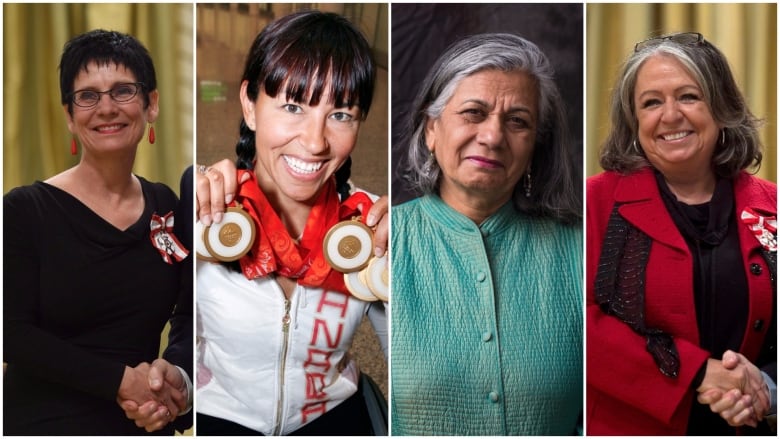Murray Sinclair had doubts about joining embattled Senate


One of Canada's first indigenous judges says he had real concerns about accepting a Senate appointment because the Upper House has such a poor reputation after years of scandal.
"My concerns were really about joining an institution that currently doesn't enjoy a good reputation in Canadian society," Murray Sinclair said in an interview with Chris Hall on CBC Radio's The House. "The fact that it has come under such intense fire over the last little while, over some of the appointments that have been made, certainly was a cause for concern."
Senators Mike Duffy, Patrick Brazeau and Mac Harb are all facing criminal charges for alleged travel and living expense abuse. The RCMP has also been investigating some 30 Senators for what the Auditor General deemed questionable spending.
Sinclair, the man who led the Truth and Reconciliation Commission on residential schools, was one of seven new Senators appointed by Prime Minister Justin Trudeau Friday. They will sit as independents, outside party ranks.
- Trudeau Senate appointees include aboriginal judge, Paralympian, ex-NDP'er, journalist
- CBC Forum: What should happen to the Senate?
- RCMP will not pursue criminal charges against some senators for questionable expenses
The new Senators owe their positions to a Liberal Prime Minister but they presented a united front Friday insisting they will remain nonpartisan.
"We haven't had any discussions and that wouldn't be my intention going forward," Sinclair said definitively when asked if the new Senators would caucus together or identify themselves as Liberals.

New Senator led Trudeau transition team
Peter Harder, the man tasked by Justin Trudeau with ushering government legislation through the Senate, pushed back against the idea that as the government's representative he was donning Liberal stripes.

"Look, I don't want to be cute and say I don't have an interest in the government's agenda going forward. I absolutely do," he said in a separate interview with The House. "I'm a parti pris in some respects but I will continue, as I have as deputy minister and elsewhere in my career, to provide my independent, professional judgment."
Dominic LeBlanc, the Liberal House Leader, also balked at the suggestion that Harder's role as the Trudeau government's point-person during the transition disqualified him as an independent.
"The transition piece is a bit of a distraction," he said of Harder's post-election role. "Those decisions are around public policy, and machinery of government advice. It's not about organizing an election campaign and filling up an arena for a campaign rally. They're different functions."
The Ontario senator will be sworn in to the Privy Council granting him the right to sit in on cabinet meetings but LeBlanc said his appearances would be sporadic and only when appropriate.

Senate still faces an image problem
Harder is a distinguished former public servant and deputy minister under both Conservative and Liberal governments, and conceded that the new senators are joining a body that still has a reputation problem.
"The Senate, it poses a significant challenge to anybody who is wanting to help improve the institution, to make a difference. This is an institution in transition I look forward to ... ensuring that the Senate has — hopefully at the end of this mandate — the respect and the view from it's citizens that its an intelligent, nonpartisan contributing body to the public interest."
The Red Chamber's expense scandals have tarnished its standing among many Canadians, but Sinclair said the new batch of independent Senators could breathe new life into its hallowed halls.
"I think it really called for people of goodwill to come forward and undertake and engage in a process to reform it so that it is a place where people could take some pride in it going forward," he said.
The Manitoba appointee said that it's unfortunate that spending problems — and ongoing criminal proceedings— have overshadowed the important legislative work Senators have accomplished.
"I looked at the role of the Senate in the past and I could see that it had a significant influence over Canadian policy. They've issued a significant number of reports that I, in fact, have come to rely upon in the course of the work of the commission and my own work as a lawyer and a judge, particularly around aboriginal issues."
All remaining seats to be filled by year's end
LeBlanc said that the government was largely satisfied with its new appointment process — where provincially-selected advisors suggest potential senators to the prime minister — and that it would be used to fill all remaining Senate vacancies by the end of the year.
He said that provincial opposition, from B.C.'s Christy Clark among others, would not stop their march toward filling the Upper Chamber.
"In the case of a province that indicated they didn't want to participate ... provinces don't have a veto in the advisory process," he said. "We'll find, what we hope, are outstanding people on our own."